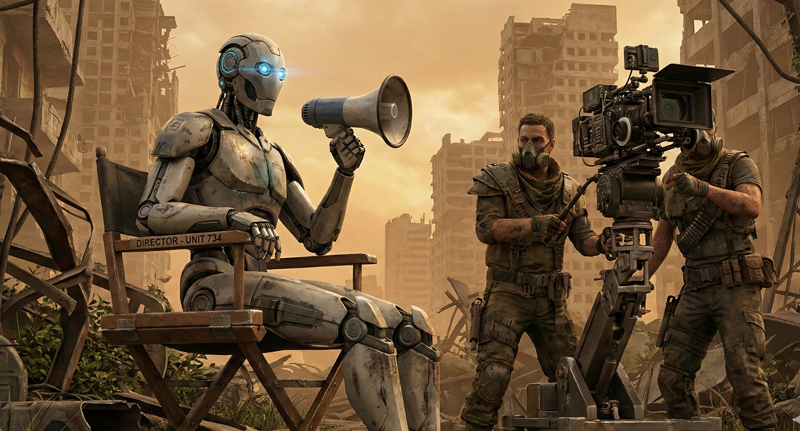Australia’s first DISRUPT AI Film Festival (DAIFF) has officially wrapped up at ACMI in Melbourne, and the results are reassuring for anyone worried about Skynet taking their director’s chair.
The good news: AI filmmaking is harder than just asking ChatGPT to ‘make it pop’.
Held during Australia’s AI Week 2025, the festival was designed to move the industry conversation from “reckless speculation” to “cold hard facts.” The organisers wanted to stop guessing how AI affects creativity and actually look at the evidence.
The festival received a staggering 371 films in its first year. To put that in perspective, the judges had to wade through 67 hours of AI-generated storytelling. That is roughly the same runtime as all eight seasons of Game of Thrones, though hopefully with a more satisfying ending than season eight.
And the winner is…
The shortlist was whittled down to 38 films before the final four were crowned. The winners represent the bleeding edge of what happens when human intent meets generative code.
The 2025 DAIFF winners
Grand Prix: Black Box by Peter Majarich
Best Short Film: Lens Wide Open by Bruce Hunt
Best Long Form: Erase by Ash “forevercoast” Phillips
Best Student Film: Unhold by Apoorva Tandon
Paul Reardon, CCO of TBWA\Melbourne and Jury Chair, noted that the technology did not overshadow the talent.
“What DAIFF proved, very quickly, is the tools don’t make the work. The people do,” Reardon said. “The best films weren’t defined by the model but by the maker. Their taste, their judgement, their intent. AI can accelerate craft, but it can’t replace it.”
Data over hype
Alongside the popcorn and awards, DAIFF released Australia’s first dataset mapping the creative landscape. The early analysis dispels the myth that AI filmmaking is a “press button, receive Oscar” process.
The data shows that current Gen AI filmmaking is iterative, labour-intensive and relies heavily on human judgement to fix those pesky hallucinations (like characters suddenly growing six fingers).
Lucio Ribeiro, DAIFF co-founder and TBWA Chief AI & Innovation Officer, said the industry needed to separate noise from reality.
“This dataset moves us from ‘we think’ to ‘we know’,” Ribeiro explained. “By bringing together platforms, universities, legal partners and industry, we’ve created the first shared foundation for Gen AI storytelling in Australia.”
The industry heavyweights
The festival was not a backyard operation. It was backed by a serious lineup including TBWA, Google, Leonardo.AI, BMW and Holding Redlich. It also leaned on academic rigour from RMIT, Swinburne University of Technology, AFTRS and DAIC.
This partnership is about more than just cool visuals. It aligns with the Tech Council Australia’s target to create 1.2 million tech jobs by 2030.
Kimberlee Wells, CEO of TBWA Australia, sees the festival as a distinct competitive advantage.
“DAIFF is Disruption® in action,” Wells said. “This is how Australia competes. By backing creativity, setting our own standards and building the infrastructure others haven’t.”
TBWA and its academic partners have developed a national white paper based on the festival data. The aim is to provide actionable insights for educators and policymakers, ensuring the next generation of filmmakers knows how to wield these tools effectively.

